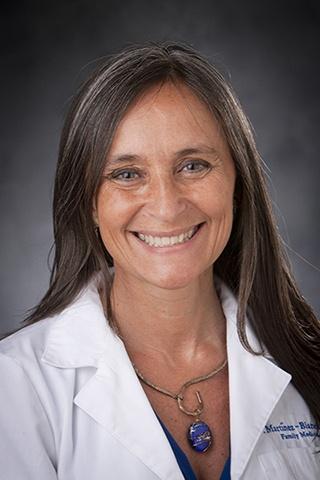On Nov. 16, Duke Community and Family Medicine department chair J. Lloyd Michener, M.D., announced plans to leave his role as chair as soon as a new chair could be named, to pursue national activities in community and population health. Many asked how this decision would affect the Duke Family Medicine Residency Program; I want to share with you how I have been preparing to lead during this change.
Every change brings tension and opportunity
Tension with the unknown, with what comes next. Both positive and negative excitement related to change can get our emotions running high.
Opportunity to create a new vision, to align resources, to innovate and figure out new ways, and to create a new momentum.
How do we go forward in times of change? We have two options: remain a small residency program, ranked among the top 10 in the country according to U.S. News & World Report, or move forward to increase the health and social impact of the program.
To increase the impact, we need to grow
We will champion a larger and improved residency program with expanded numbers of residents to meet the workforce needs of the present and future. We will hire an increased number of dedicated faculty, and are beginning to think about a new building that will house our dreamed expansion with a high-functioning family medicine residency clinic that is engaged with the community.
We will expand on our new partnerships with Duke Primary Care, the Durham VA Medical Center, and the Granville Health System. We will continue our collaborations with Duke University and Health System, Duke Regional Hospital, the Private Diagnostic Clinic, UNC Health Care, Lincoln Community Health Center (LCHC), Wake Med, El Futuro, TROSA, Just for Us, Durham and Wake departments of public health, Southern High School, the LCHC-Duke Division of Community Health community clinics, and global sites. And we will create new collaborations where there is opportunity and need.
The department has constituted a strong transition team led by Dr. Michener, whose vision and mentorship I value immensely. I will take the lead on the needed changes for the residency, and call on faculty and residents willing to be part of a residency vision team. I am optimistic about our possibilities, and our ability to handle this challenge.
As we dream, develop and act on the expansion of the residency program we will engage our Duke Graduate Medical Education leadership and members of Duke departments, programs and community practices who support our current success.
I envision more of the good that we already do:
- Graduates of our program who can improve outcomes in any community that needs them,
- Growing locally through an expansion to reach rural populations as well as urban and suburban ones,
- And innovation in areas we have not yet worked on.
People have not come to train at Duke Family Medicine because of our fancy buildings, they come here because of what we build. They are here because we build a community of learners and doers. Passionate faculty and residents that inspire all others around them to innovate, to look for ways to improve the lives of our communities, to become peers and mentors who coach, train and use tools and skills to improve outcomes. People who communicate, who can build on policy. Who develop into excellent clinicians, who are literally poised to change the world.
We are strong in human capital, value and capacity and look forward to the opportunities and challenges ahead.
Our goal is to train family physicians who are excellent clinicians, and agents of social transformation, who detect real problems, and find original and creative solutions to improve health.
Viviana Martinez-Bianchi is program director of the Duke Family Medicine Residency Program. Email viviana.martinezbianchi@dm.duke.edu with questions.
Editor’s note: A member of the Duke Family Medicine Residency Program leadership team guest blogs every month.
